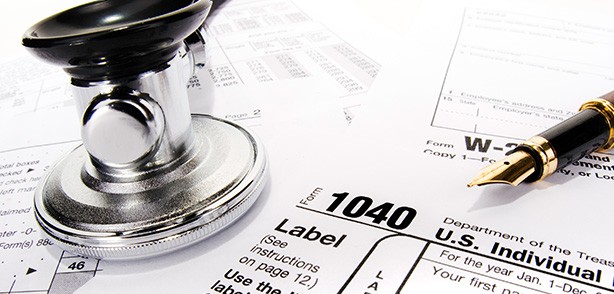10 Smart Reasons to File Your Business Tax Return on Time

Sure. In the dead of winter, you may not want to bring the vibe down even more by crunching numbers for your tax return. But if you take that idea too far, you're opening up your business to serious financial and criminal risks.
Yes, in some isolated cases, it's necessary to file after the deadline (see below). But otherwise, filing on time makes good business sense. Besides, who wants to be on the bad side of the IRS? Here's why you should stay on top of your tax obligations.
1. Filing late is expensive.
If you want to misspend your own salary, that's your privilege. But it is your fiduciary responsibility to act in the best interests of your business and its investors—especially if you have employees relying on a regular paycheck.
When you file and pay your taxes late, you can be assessed two charges in addition to the tax itself: penalties and interest on the amount due.
The IRS typically charges a failure-to-file penalty: The penalty is 5% of the tax due (less any tax paid on time and available credits) for each month or partial month the return is late. The penalty accrues up to a maximum of 25%; Interest charged is the Federal short-term interest rate plus 3 percent.
The minimum penalty for filing a 2024 return 60 days late or longer is $510, or 100 percent of the tax, due, whichever is less.
Filing an extension is better than filing late without notice. See IRS Topic No. 304 for more information on this option.
2. If you're business is strapped for cash, filing on time can ease your burden.
As bad of a rap as the IRS often gets, it works with responsible taxpayers on payment plan agreements—with interest—to get your bill paid with as little stress to your business as possible.
3. Get your accountant's office when they're most available (and not burnt out).
Accountants are stressed out enough. Last-minute or late filings further cut down the time they can spend with your return. In some cases, they may ask you file an extension, so they can assure a thorough filing. Taking the time to schedule your appointment and do your return correctly helps you plan for next year's taxes.
Why Not File?
In these cases, you may have a legitimate reasons for requesting to file a late income-tax return*:
You're...
Lacking essential documentation pending transactions.
Anticipating tax-code changes that may reduce your tax obligation.
Short on the cash.
Involved in an existing IRS case. You want to withhold payments pending resolution of the dispute.
*No matter what your reason, always consult with your accounting and/or legal counsel before making a tax-filing decision.
4. Maintain your cashflow (and lower your stress level).
The penalties and interest that come with late filings can put a serious dent in your daily cashflow. If your business is just starting out, cashflow is enough of a challenge without adding extra risk to the mix.
6. This is not the way your business should "go public."
If the IRS places a lien on any or all of your business assets over time, it will become a matter of public record—one that lenders, present and potential customers, and business partners can obtain with a few keystrokes.
7. Protect your credit score and buying power.
Though the IRS does not report delinquencies, if you tap an unusual amount of your available credit to pay your federal tab, that will drag down your credit score. And even if your credit score remains high, what happens when you're looking to rent or buy a new space for your business? Secure a loan to expand your operations? How far will you get without tax returns to prove your solvency?
8. Consider the personal consequences.
If you're a sole proprietor or an LLC, a bad tax-payment record makes you personally liable for those business taxes.
9. Due a refund? Don't jeopardize it.
If you're due some money back and you don't file in a timely fashion, you're hurting yourself that much more. The only "good" part about filing late when you're due a refund is that you won't get dinged with a late-filing penalty. (After all, you're lending the government money.) However, the IRS puts limits on its good will. Refunds not filed for within three years are forfeited. Yes, that "loan" is now a gift to the government. Do you really want to do that?
10. Avoid the most severe consequence.
A lingering delinquency may result in liens and levies. Consider the nightmare of watching your essential business real estate and equipment—and even your bank accounts—being seized. As if that's not enough pain, the IRS also reserves its right to revoke your passport (yes, you read that right) if you owe more than $59,000 in combined tax, penalties, and interest, as part of the Fixing America's Surface Transportation (FAST) Act. Such actions can put you out of business.
Be proactive
If you're procrastinating on tax payments because you're strapped for cash, don't let that be the reason for falling behind. You or your accountant can file for a legitimate extension and create a payment plan. By doing so, you're protecting your hard-earned business accomplishments, your partners' and employees' financial well-being, and your professional reputation.
Did you know?
Raking in $612.8 billion, Corporate income taxes are the third-highest source of Federal Government revenue. Individual income taxes top the list at $2.5 trillion, followed by Social Security taxes at $1.1 trillion.
Source: Pew Research Center
Since 2008, Fora Financial has distributed $4 billion to 55,000 businesses. Click here or call (877) 419-3568 for more information on how Fora Financial's working capital solutions can help your business thrive.







